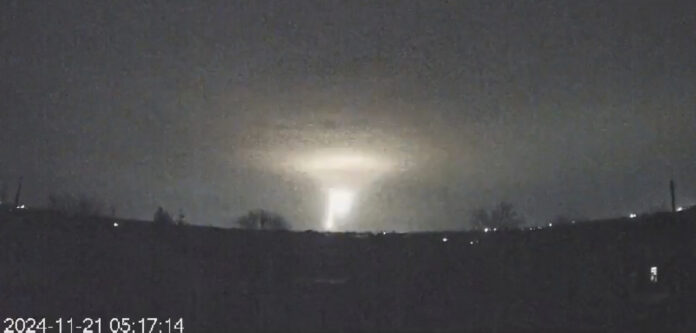The prospect of a full-scale European war has escalated dramatically after U.S. President Joe Biden approved the use of American missiles by Ukraine to target Russia.
This decision comes amid the two-year-plus conflict between the two nations, pushing Russia to revise its nuclear weapons policies in response to the heightened threat.
The green light for Ukraine to deploy U.S.-supplied weaponry marks a significant turning point in the conflict, signaling deeper Western involvement. Moscow has reacted sharply, indicating that this move has compelled it to reevaluate its strategic posture, particularly regarding the deployment of nuclear weapons. Analysts warn that this escalation could bring Europe closer to a devastating confrontation.
Germany Drafts “Operation Deutschland” Amid Rising Tensions
Adding to the growing unease, recently uncovered documents reveal that Germany has begun contingency planning for the potential deployment of NATO troops into Ukraine. The plans, reportedly involving as many as 800,000 troops, including American forces, underscore the gravity of the current geopolitical climate.
The document, titled “Operation Deutschland,” is a comprehensive 1,000-page dossier aimed at preparing Germany for the possibility of a World War III scenario. According to the German newspaper Frankfurter Allgemeine Zeitung, the plan outlines detailed strategies for safeguarding critical buildings and infrastructure for military use. It also includes measures to mobilize civilians and businesses in the event of escalated threats.
Specifics of the Plan Reveal Germany’s Readiness
The leaked document highlights Germany’s focus on protecting strategic assets such as power plants, transportation hubs, and communication networks. It also delineates protocols for ensuring the continuity of government operations and maintaining public order under extreme circumstances.
Furthermore, “Operation Deutschland” includes provisions for emergency drills and public information campaigns aimed at preparing citizens for potential wartime scenarios. These efforts reflect Germany’s growing concern about the destabilizing effects of Russia’s nuclear policy shifts and the broader implications of NATO’s involvement in the conflict.
Global Reactions Intensify
The revelations have sparked a flurry of diplomatic activity, with NATO allies expressing both support and apprehension. While some nations back Germany’s proactive stance, others worry that these measures may exacerbate tensions and accelerate the path to war.
Experts argue that the alignment of Western powers behind Ukraine has put unprecedented pressure on Russia. However, they caution that the increasing militarization of the region raises the risk of miscalculation, which could have catastrophic consequences.
As the world watches, the decisions made in the coming weeks could determine whether Europe stands on the brink of another major conflict or finds a pathway to de-escalation.


